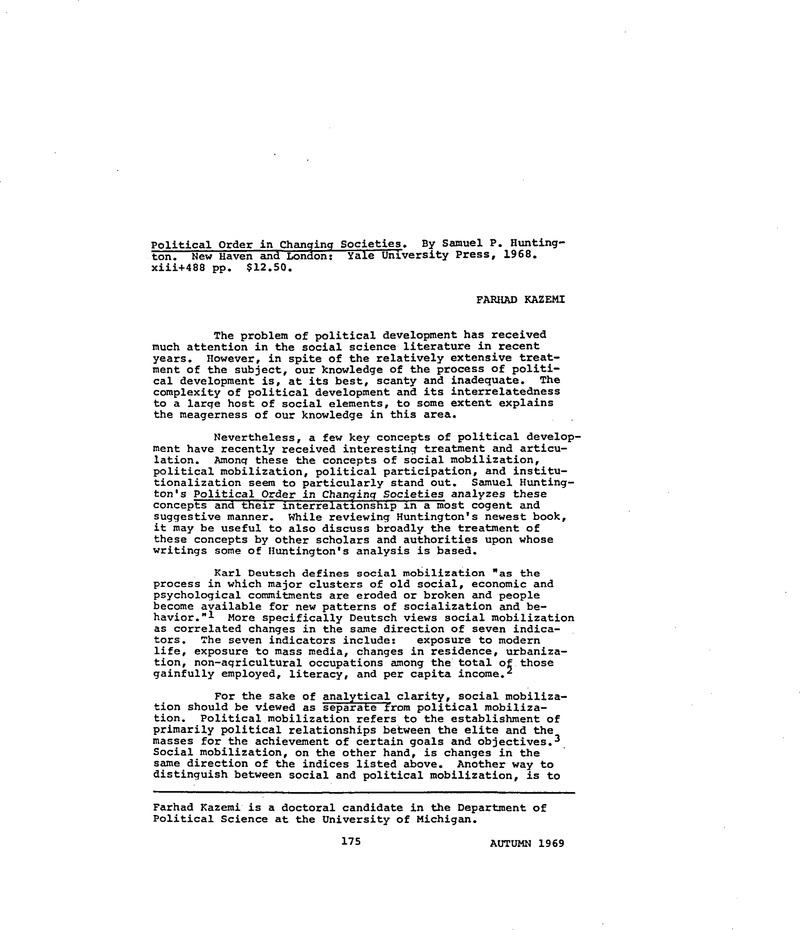No CrossRef data available.
Published online by Cambridge University Press: 01 January 2022

1. Deutsch, Karl W. “Social Mobilization and Political Development,” American Political Science Review, LV (September, 1961), p. 494.Google Scholar
2. Ibid., p. 495.
3. Barnes, Samuel “Mobilization and Political Conflict: A Theoretical Inquiry into the Structural Bases of Consensus and Dissent,” (mimeo), p. 2.Google Scholar
4. For this distinction I am indebted to Professor A.F.K. Organski, oral communication, 1969. For Organski's discussion of mobilization see his Stages of Political Development (New York: Alfred A. Knopf, 1965).Google Scholar See also Binder's discussion of national integration in terms of the closure of the gap between elites and non-elites; Binder, Leonard “National Integration and Political Development,” American Political Science Review, LXIII (September, 1964) , p. 627.Google Scholar
5. Barnes, p. 3.
6. Huntington, Samuel Political Order in Changing Societies (New Haven: Yale University Press, 1968) , p. 33.Google Scholar
7. Ibid., pp. 49-59.
8. Ibid., p. 37. Deutsch, p. 498.
9. Almond, Gabriel and Bingham Powell, G. Jr. Comparative Politics; A Developmental Approach (Boston: Little, Brown, and Company, 1966), p. 53.Google Scholar
10. Lipset, Seymour Political Man: The Social Bases of Politics (Garden City, N.Y.: Anchor Books, 1963), p. 65.Google Scholar See also Almond, Gabriel “Political Systems and Political Change,” American Behavioral Scientist, VI (June, 1963), P. 6.Google Scholar
11. Huntington, Samuel P. “Political Development and Political Decay,” World Politics, XVII (April, 1965), p. 393.Google Scholar
12. Huntington, Political Order…, p. 91. See also Palombara, Joseph La and Weiner, Myron “The Origin and Development of Political Parties,” in La Palombara, and Weiner, (Eds.), Political Parties and Political Development (Princeton: Princeton University Press, 1966), p. 5 and p. 30.CrossRefGoogle Scholar
13. Huntington, Political Order…, p. 412.
14. Ibid., p. 86. See also his “Political Development and Political Decay,” pp. 419-421.
15. Huntington, Political Order…, pp. 12-24; and Huntington, “Political Development and Political Decay,” pp. 394-405.
16. The chapter on “Political Change in Traditional Polities” is especially recommended to the readers of Iranian Studies. Here Huntington discusses (with references to Iran) the dilemmas and problems faced by “modernizing” monarchies.